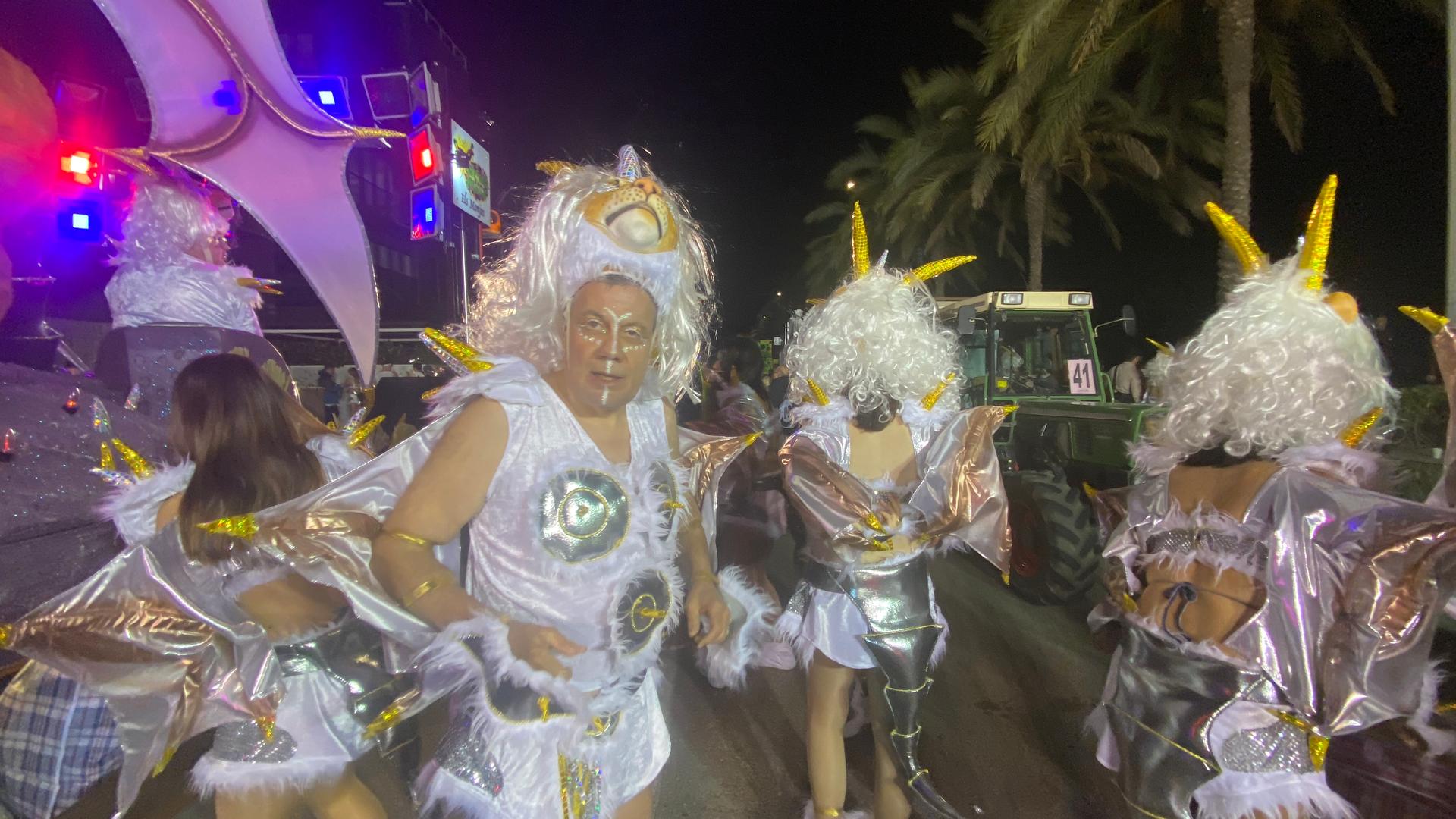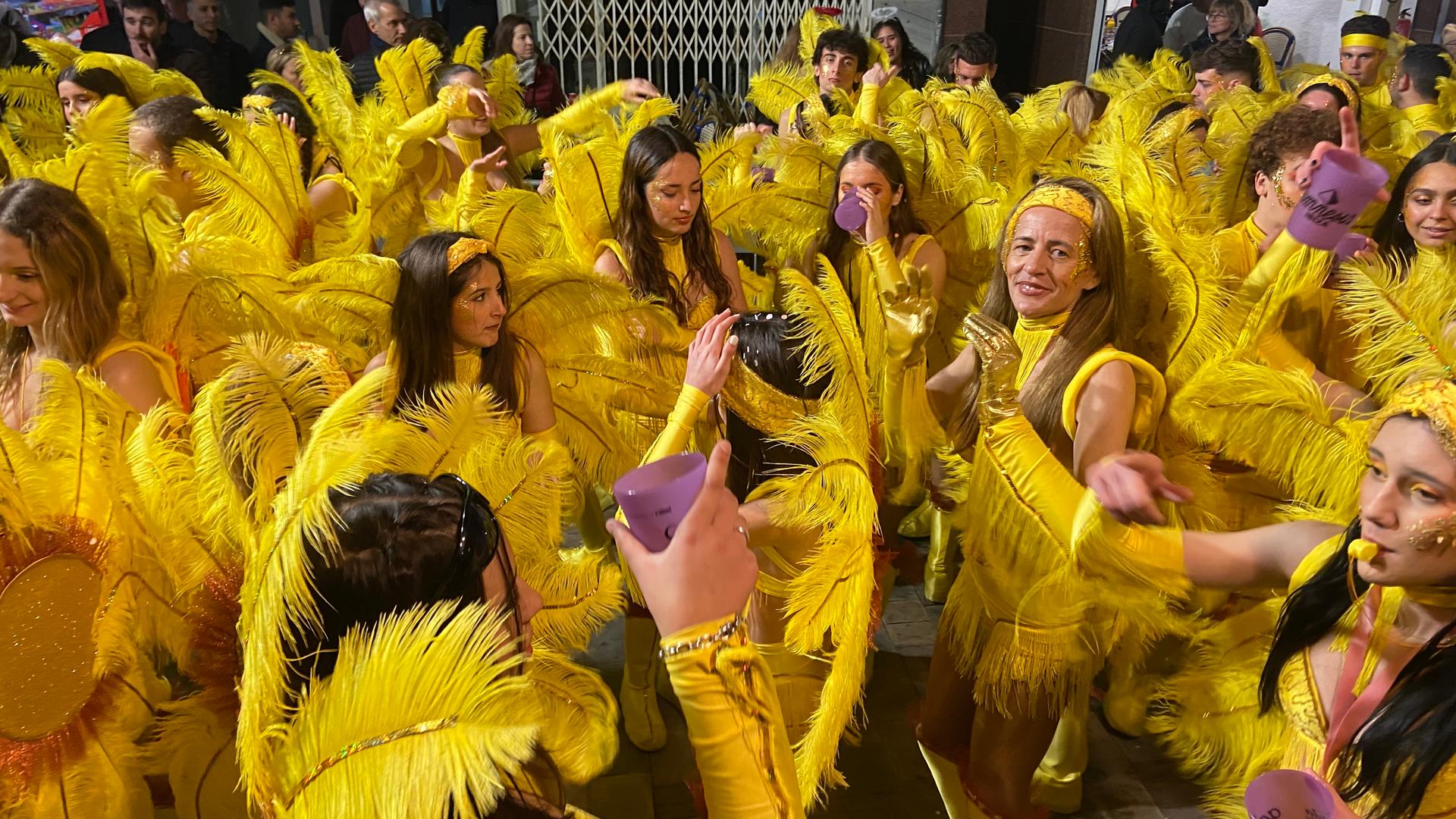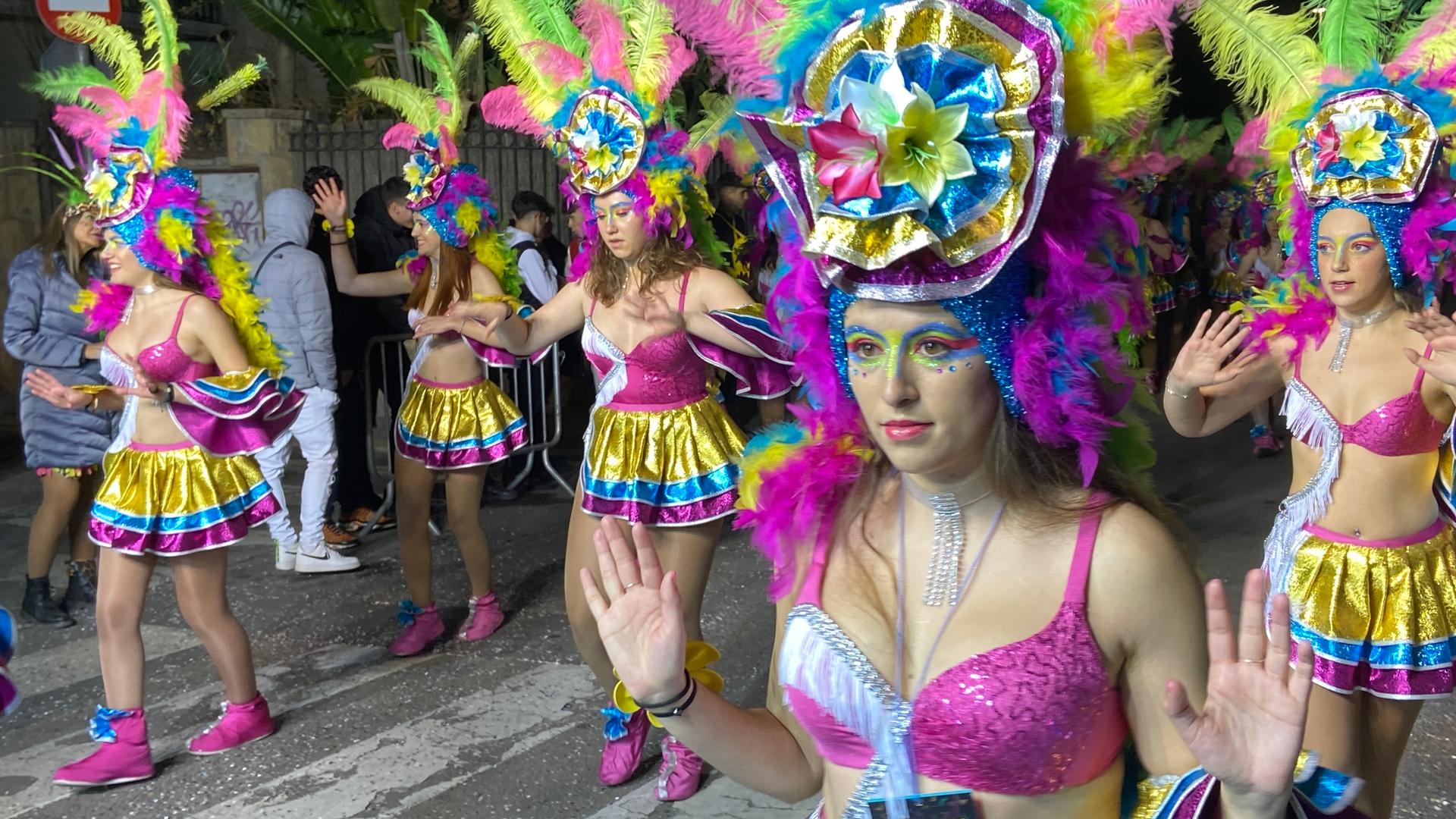In the town of Calafell, Spain, along the beach road, hundreds of dancers are putting the final touches on their costumes while a line of floats stretches for over a mile. Crowds of spectators abound.
The festivities are part of the vibrant, yearly Carnival happening this week, which precedes the Christian period of Lent with costumes, parades, street parties and concerts.
Although for many it’s a chance to let loose, in some small towns in northeast Spain, including Calafell, there’s a movement to fight male chauvinism that has historically come up during Carnival by banning songs with sexist lyrics. But when it comes to pop music, the line between sexist and sexy can be complicated.

The local Sexist Lyrics Commission is paying attention to whether any parade floats play a song deemed to denigrate women.
If that happens, they’ll lose public subsidies that help pay for all of this, according to Pere Nin, a float organizer who helped make the rules against sexist lyrics back in 2019.

“Each town has its own list of banned songs, and beforehand, each float has to give the town the names of the songs it wants to play,” he said, adding that the intention is good.
In this era of #MeToo, several towns in this region have embraced the idea. But in practice, he said, the question of whether to ban has gotten murky.
“It’s one thing if a song is obviously sexist,” he said. “It’s another when a song has a line or a word that might offend.”
For example, the song, “SloMo,” sung by Spanish superstar Chanel, has been flagged as problematic.

“This song took third place last year in the Eurovision song contest,” Nin said. “And the singer, Chanel, is committed to the cause of gender equality.”
So, why ban it here?
Another popular hit, “Suavemente,” by Elvis Crespo, has also been banned. These are songs people love. So, it’s not surprising that this hunt for the lyrically offensive is getting mixed reviews from carnivalgoers.
Dancer Sara Coam said there’s no room at Carnival, or anywhere, for macho music that objectifies women.

“If people would stop listening, the artists would stop writing sexist lyrics,” she said.
But her friend Marta Tamayo said it’s more complicated: “Sometimes, a song gets so popular that you feel like the odd person out if you don’t sing along.”
DJ Miguel Aguila, 23, who was also on hand, said he is against the bans altogether.
The most popular songs he plays, he said, are those that allude to sex.

“Carnival is nothing if not sexy,” he said.
Even Nin, who helped get the lyrics ban going, said the whole thing may just need a rethink.
“It’s starting to remind me of other periods we’d rather not remember,” he said. Like, the Inquisition or the dictatorship of Francisco Franco, he added.
Under Franco, authorities banned songs from the political left. This is the Carnival conundrum, Nin said: Women must be respected. But in a pop song where’s the line?
The intersection of pop culture, sexuality and misogyny can create crosscurrents that maybe carnival floats simply can’t be expected to navigate.
Our coverage reaches millions each week, but only a small fraction of listeners contribute to sustain our program. We still need 224 more people to donate $100 or $10/monthly to unlock our $67,000 match. Will you help us get there today?
